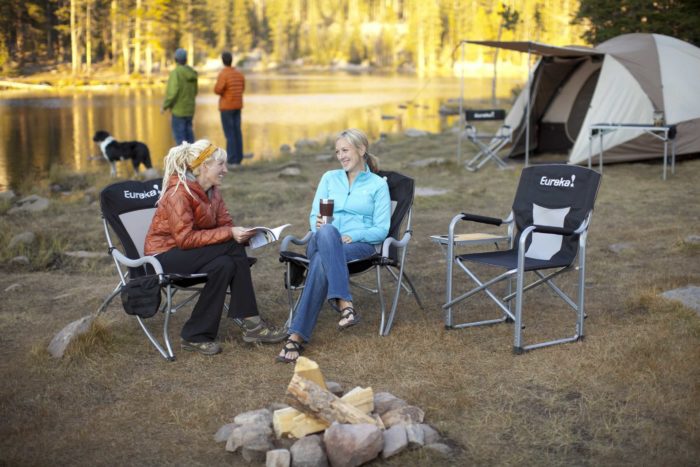20 Camping Terms You Should Know
Campers use a lot of colorful terms, and by expanding your camping vocabulary, you can communicate more effectively on your next trip. Here are 20 important terms that every camper and hiker should know.
CAMPING TERMS
1. Guy Lines - The cables tied to a tent and its stakes, designed to provide tension that adds to the overall stability of the tent.
2. Deadman - When the ground is too soft to stake a tent, campers often bury large rocks or sticks tied to guy lines to pitch the tent safely. Deadman is the slang term for this process.
3. Tent Pad - The tent pad refers to the ground under your tent. It's distinct from sleeping pad, which is an actual piece of padding placed between your sleeping bag and the bottom of the tent.
4. Freestanding - A term for tents that do not need guy lines.
5. Boxing the Needle - The process of lining up a compass's needle with magnetic north.
6. Kerf - A cut made by an axe, machete or other blade.
7. Old Growth - Older (and typically bigger) local vegetation. Cedars, sequoias and other trees with long lifespans are often called old growth.
8. Understory - Vegetation that lies close to the ground in a forest or other wild area.
9. R Values - A measurement that shows the effectiveness of a sleeping pad, sleeping bag or tent's insulation. The higher the R value, the better the insulation.
10. No Trace - This is one of the fundamental concepts of camping; you should leave no trace when you leave your campsite in order to preserve the local environment.
11. Open Site or Closed Site - Refers to the amount of vegetation around a campsite. Open sites do not have high vegetation and get a lot of sunlight.
12. Alpine Zone - The visual area located just above the treeline. This is a common term among hikers, who use it for navigation.
13. Baffle Construction - Tents, sleeping bags and clothing often use baffles to stop polyester, cotton and other insulators from settling in a certain part of the item. Baffle construction keeps heat from escaping and allows for uniform warmth.
14. Day Pack - A small pack that hikers take out for short-term trips. Usually, a day pack is light and only contains essential items.
15. Wilderness - By federal definition, a wilderness is an area where humans are just visitors; the land isn't maintained, and motorized vehicles aren't allowed. Most campsites do not qualify as wilderness by this standard.
16. Bear Lockers - Metal lockers provided by a campsite to keep bears and other wildlife from eating campers' foods.
17. Bear Hangs - A food bag tied to a rope and thrown over a high limb to prevent bears from getting to it.
18. Chuck Box - A box or sack for camping cookware. Keep the chuck box separate from the rest of supplies to minimize cleanup.
19. No-See-Ems - Camping slang for small bugs. Many tents use "no-see-em" mesh, which is designed to keep these bugs out of a sleeping area.
20. Switchback - Climbing a mountain or hill with a zig-zag motion. This allows for a significantly easier ascent in many situations.